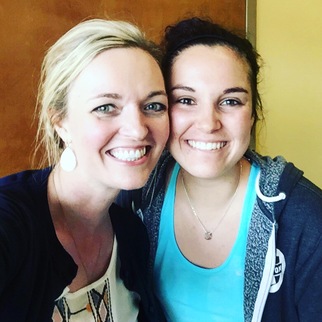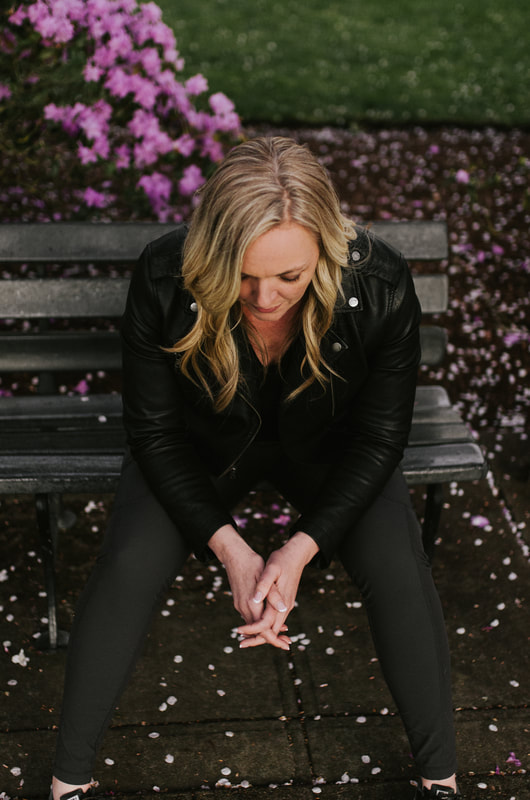 Next week, I will be speaking at the 2016 National Conference on Hydrocephalus, an event put on by the Hydrocephalus Association. I’m so excited and honored. In addition to participating in a few other aspects of the conference, I have been asked to join a panel discussion on the challenges that hydrocephalus patients face when transitioning from youth into adulthood. The years in which a child becomes an adult bring so many changes - not only in medical care, but sometimes in living situations, schooling, relationships, and/or jobs and career planning. Over the past few years I’ve had the pleasure of connecting with many parents of children with hydro, and I recognize that one of my primary roles in this community has been to encourage many moms and dads, who worry about what their little one’s adult life might look like. Even though there are a lot of “high functioning” adults with hydrocephalus out there, I think people have gravitated towards my husband and I because we are active and positive, and very open with my story. Despite the fact that we have had a rough road with my shunt over the past several years, we keep working hard at keeping me healthy and happy. Don’t get me wrong; we are human, and have many frustrations and heartbreak. But we remain a united front, and we refuse to be complacent - instead we take an active and aggressive role in my care, and that has worked well for us. Since the Hydrocephalus Association approached me with this speaking topic, I have spent a good deal of time reflecting on my own path. For those of you who aren’t able to attend the conference, I wanted to share a bit of my story, and a few of my thoughts on the subject of transitioning from youth into adulthood with hydrocephalus. MY STORY I grew up in a large family. I’m the second born of seven children. My parents are healthy, but in addition to my hydrocephalus, I have two sisters with juvenile rheumatoid arthritis, which is a devastating illness, as well as a sister who is mentally delayed. My sister Lisa was very sick from birth, and has spent her entire life battling her condition (arthritis) every day, which is very debilitating. As she grew, I watched my parents advocate for her not only medically, but also in school, hobbies, and in life. They relentlessly sought out and tried all types of therapies, searching for solutions for her pain and ways to help her have better function. Most importantly, they never let her believe that she was not going to be able to be a fully functioning member of society. As a result, she grew up to be a confident, social, smart, and beautiful human being. Despite spending at least half of her junior high and high school years laid up in bed recovering from various joint surgeries, she not only finished high school, but she finished at the top of her class - valedictorian. As an adult, she lives independently, owns a home, and has a very successful career. She is my inspiration every day - and the example she sets keeps me moving forward. I’m thankful to my parents for showing me by example how to gracefully navigate life with medical challenges. I was diagnosed with hydrocephalus at age seventeen, so I had fully grown and developed before it was discovered. The hydro had gone undetected for an unknown length of time, but it was suspected that it was years, based on the severity at the time of discovery, and the size of my ventricles. (*See “My Story” page for more information on my medical history) As a healthy and active teen who had never had a major illness or medical event, I was instantly thrown into the world of CT scans and MRI’s, hospitals, and ultimately, brain surgery. My entire life was put on hold until further notice, including schooling. Not only did I have to take some time off from high school, but college was indefinitely put off, until my health could stabilize. I was an excellent student and a champion fiddle player, with aspirations to become a professional musician, so I was devastated and totally lost as I tried to grasp the fact that life had just been ripped out from under me. Just like they had with Lisa, my parents flew into action, and got me the best medical care they could find. When things didn't work out with one neurosurgeon, we got different one. When I kept suffering from epic shunt failures, they looked for another option, and we found a surgeon who would perform an ETV surgery for me. They stayed positive, and they were always encouraging. But most importantly, they refused to let me wallow in self pity and doubt regarding the whole situation. Instead, I participated in my doctor’s visits, was expected to speak up and answer questions, communicate with my medical team, and make alternative plans for the years that followed high school. If it wasn’t safe for me to move away to college (or Nashville), I was to find a job and start living my life as if it was moving forward. I am forever grateful for the high expectations that were placed on my shoulders, and for the big push in the right direction…. because it made me who I am today. Ultimately, it also gave me better coping skills, and shaped the way I manage my hydrocephalus as an adult. My husband Clifton and I have a mission statement; to live in relentless pursuit of everything that’s important. In life, anything you want to accomplish will take a certain dogged determination. This includes love, health, career, and relationships. If you aren’t willing to throw yourself at a goal with reckless abandon, you may never see the full potential of what you desire. As a mentor to young girls who have hydrocephalus, I’ve had this conversation over and over again. There are many paths that lead to success in life. One person’s version of success might be completely different than another’s, but they will take equal relentless effort to achieve. MY ADVICE ON TRANSITIONING:
I get a lot of questions regarding intimate relationships/boyfriends/girlfriends - because these transitioning years is the time period that those things start to get serious! The advice that I can offer in this department is as follows:
In closing…. Hydrocephalus often leads us down a very difficult road, but love and life are well worth the battle - and it’s our choice to keep the wheels turning. If you have goals, believe in yourself - that you can and will do whatever it may takes to reach that success. If you are willing to work towards these goals in relentless pursuit, I BELIEVE IN YOU. I believe that you will persevere, overcome obstacles, and be the best version of yourself. #stayinthearena All my best, Amy Photo: Lauren Rodrigues, one of my hydro girls, and I - Lauren is currently in her freshman year of college, and just got into nursing school!
1 Comment
Denise waterman
6/11/2016 06:02:31 pm
I have been following your posts and congratulate u on your speaking engagement. This topic of transition never seems to be communicated with the dr. Even when we were looking for a new neurosurgeon my daughter was 18 neither the pediatric or the adult dr.s wanted to take your case we r still struggling with dr. But want u to know u r an inspiration to me as a parent.thanks
Reply
Leave a Reply. |
AuthorMy name is Amy but friends and family call me Am. I am a lover of dogs, good whiskey, and strength training. I'm a brain surgery survivor (x31), a fiddle player, a construction designer, and a boxing enthusiast. I have six real siblings, and five fake brothers. I love deeply, and consider my close friends to be family. Archives
February 2022
Categories
All
|


 RSS Feed
RSS Feed